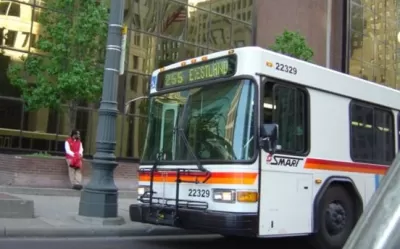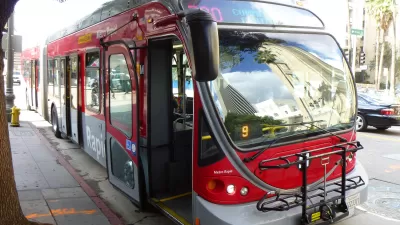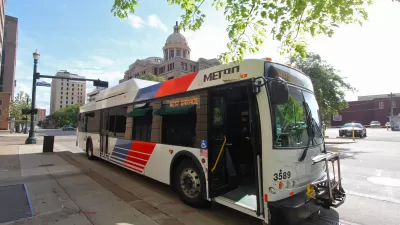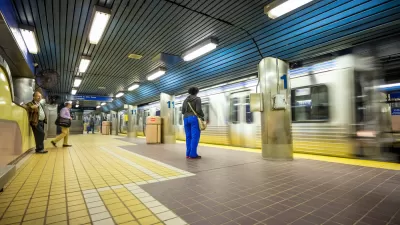Transit advocates worry that the movement to eliminate fares will come at a high cost to transit-dependent riders who rely on frequent, reliable service to reach jobs and services.

While many transit agencies are considering reducing or eliminating fares to boost ridership, some policymakers worry that the lost revenue will have a negative impact on transit service and the people who rely on it, writes Luz Lazo in The Washington Post.
Local transportation and political leaders say that while the pandemic has harmed transit, it also highlighted its critical role for 'essential' workers. Many kept riding to get to jobs at grocery stores, restaurants and hospitals as workers with more flexibility stayed home. Bus ridership has fared better than rail ridership during the pandemic, in large part because of service workers.
With fare revenue sometimes covering as much as a quarter of transit operations, agencies that eliminate fares must rely more heavily on other local, state, and federal funding sources. In the Washington D.C. region, Lazo writes, "loss of fare revenue would translate to nearly $170 million that jurisdictions would need to find from federal, state or local sources."
Lazo details the fare reduction proposals of various D.C.-area agencies, but cites surveys showing that frequency and convenient routes play a more important role in whether people choose to use transit than cost. Reduced fares can encourage more people to use public transportation, but only if it takes them where they need to go. Meanwhile, riders who rely on it worry that reduced service will make it even more difficult to get around.
The concept of fare-free transit picked up steam during the pandemic as transit agencies sought ways to bring riders back. Advocates say eliminating fares is an important step toward transit equity. And, to be clear, the structural deficits of transit operations still threaten the future of public transit.
FULL STORY: Bus systems are eyeing lower fares, leaving passengers and advocates to wonder at what cost

Planetizen Federal Action Tracker
A weekly monitor of how Trump’s orders and actions are impacting planners and planning in America.

Congressman Proposes Bill to Rename DC Metro “Trump Train”
The Make Autorail Great Again Act would withhold federal funding to the system until the Washington Metropolitan Area Transit Authority (WMATA), rebrands as the Washington Metropolitan Authority for Greater Access (WMAGA).

The Simple Legislative Tool Transforming Vacant Downtowns
In California, Michigan and Georgia, an easy win is bringing dollars — and delight — back to city centers.

The States Losing Rural Delivery Rooms at an Alarming Pace
In some states, as few as 9% of rural hospitals still deliver babies. As a result, rising pre-term births, no adequate pre-term care and "harrowing" close calls are a growing reality.

The Small South Asian Republic Going all in on EVs
Thanks to one simple policy change less than five years ago, 65% of new cars in this Himalayan country are now electric.

DC Backpedals on Bike Lane Protection, Swaps Barriers for Paint
Citing aesthetic concerns, the city is removing the concrete barriers and flexposts that once separated Arizona Avenue cyclists from motor vehicles.
Urban Design for Planners 1: Software Tools
This six-course series explores essential urban design concepts using open source software and equips planners with the tools they need to participate fully in the urban design process.
Planning for Universal Design
Learn the tools for implementing Universal Design in planning regulations.
Smith Gee Studio
City of Charlotte
City of Camden Redevelopment Agency
City of Astoria
Transportation Research & Education Center (TREC) at Portland State University
US High Speed Rail Association
City of Camden Redevelopment Agency
Municipality of Princeton (NJ)





























